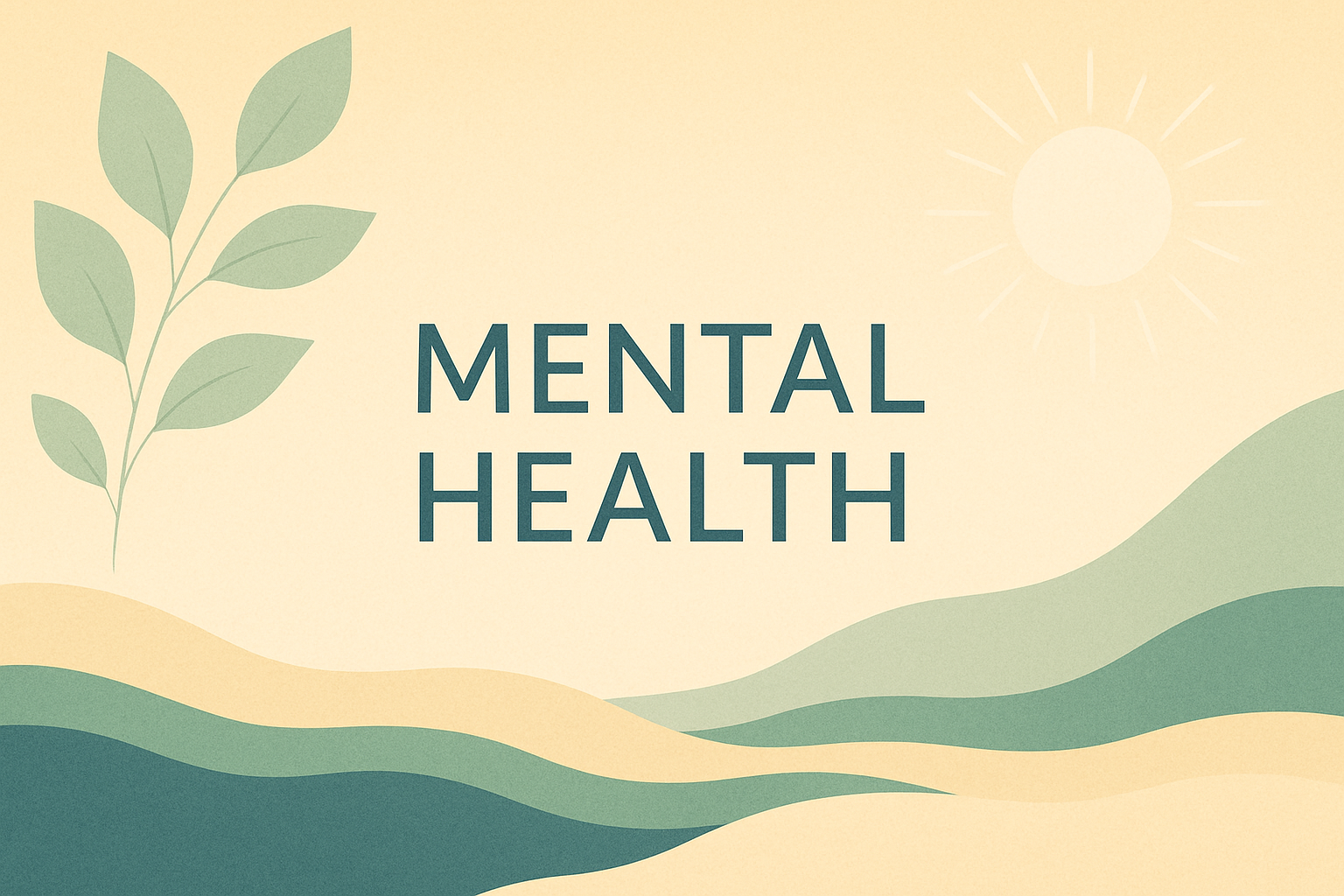Book Appointment Now

The Body-Mind Connection: How Stress, Anxiety & Insomnia Shape Mental Health
Mental Health: More Than Just Emotions
Mental well-being is one of the most talked about — yet least understood — aspects of health. We often associate it with emotions or mindset, but it goes far deeper than that. What we experience as anxiety, depression, insomnia, or chronic stress is often a full-body response to imbalance. These aren’t isolated mental challenges — they’re part of a larger conversation happening between the brain, body, and environment.
In today’s world, it’s easy to miss the early signs. The constant pressure to stay productive, the overstimulation from screens and notifications, the emotional weight we carry silently — all of it adds up. Over time, this unprocessed stress gets stored in the nervous system, digestive tract, hormonal pathways, and even the quality of our sleep. When the system reaches capacity, it speaks up — not just with thoughts, but through symptoms like restlessness, exhaustion, low mood, irritability, or the inability to fully relax.
How Chronic Stress Keeps the Nervous System in Survival Mode
Many symptoms of mental distress can be traced back to a nervous system that’s been on high alert for too long. The fight-or-flight response was designed for short bursts of survival, but modern life often keeps it activated day after day — through deadlines, decisions, unprocessed emotions, and the pressure to perform.
This constant activation wears the system down:
- Cortisol levels remain elevated
- Sleep becomes shallow or disrupted
- Digestion slows
- Inflammation rises
Over time, the mind begins to mirror the body’s fatigue: anxiety increases, moods fluctuate, energy drops, and resilience thins.
Depression, in this context, is not just a chemical imbalance. It’s often a sign of deep emotional, physical, and energetic depletion. A body that has been “on” for too long eventually shifts into shutdown — not as weakness, but as a protective mechanism.
The Gut-Brain Axis: How Digestion Affects Mood and Sleep
Sleep is one of the first places imbalance shows up — and one of the most powerful tools for healing. But for many, quality sleep feels out of reach. Insomnia isn’t just a nighttime issue — it’s a reflection of daytime dysregulation.
Blood sugar imbalances, emotional residue, overstimulating habits, and underlying inflammation can all make it hard to fall — or stay — asleep. Without restorative sleep:
- The brain doesn’t reset
- Emotional processing is delayed
- Memory suffers
- The body stays stuck in survival mode
Mood and sleep are deeply linked to digestion and hormonal rhythms. The gut produces most of the body’s serotonin — a key neurotransmitter for mood balance. When digestion is impaired by stress or poor diet, this production suffers. Inflammation in the gut can influence brain chemistry, leading to heightened emotional reactivity and mental fatigue.
Why Mental Well-being is a Full-Body Experience
The idea that mental health exists only in the brain is slowly being replaced by a more holistic truth: the mind and body are inseparable. When the body feels safe, nourished, and rested, the mind tends to follow. But when the body is inflamed, undernourished, sleep-deprived, or in constant overdrive, the mind reflects that too — often through symptoms we label as disorders.
This understanding creates space for compassion. It shifts the focus from trying to “fix” symptoms to asking:
- What’s not being supported?
- What’s the body trying to express?
- Where is recovery being delayed?
Mental well-being depends on much more than mindset. It relies on:
- Blood sugar stability
- Hormonal balance
- Gut health
- Daily rhythms
- Emotional processing
- Rest
Slowing Down Is the First Step Toward Healing
Healing mental fatigue, anxiety, or emotional burnout doesn’t come from doing more. It often begins with doing less. With pausing. With listening to what the body needs. With small, consistent shifts toward nourishment, stillness, and support.
This doesn’t mean striving for perfection or “fixing” yourself. It means recognizing that the way we live directly shapes how we feel — and that small, sustainable changes in rhythm, breath, food, and rest can gradually rewire the nervous system toward calm.
Mental well-being isn’t a destination. It’s a relationship — with the self, with the environment, and with the body’s own pace.
FAQs About Mental Health & the Body-Mind Connection
1. How does stress affect the nervous system?
Chronic stress keeps the nervous system in a constant state of alert, disrupting sleep, digestion, hormone balance, and emotional regulation.
2. Can gut health really impact my mood?
Yes. The gut produces a significant portion of serotonin and other mood-related neurotransmitters. Poor gut health can lead to mental health symptoms like anxiety and depression.
3. Why can’t I sleep even when I’m tired?
Sleep issues often stem from an overstimulated nervous system, blood sugar imbalances, or inflammation. True rest starts with daytime regulation.
4. What’s a holistic way to approach anxiety and depression?
Addressing diet, sleep, boundaries, emotional safety, and nervous system regulation can create sustainable improvements in mental well-being.
Ready to Reconnect with Your Body and Mind?
If you’re experiencing symptoms like anxiety, insomnia, stress, or depression — remember, your body is trying to communicate.
At Ecosophical Wellness, we help you listen and respond with care.
Explore how we support mental well-being holistically →
